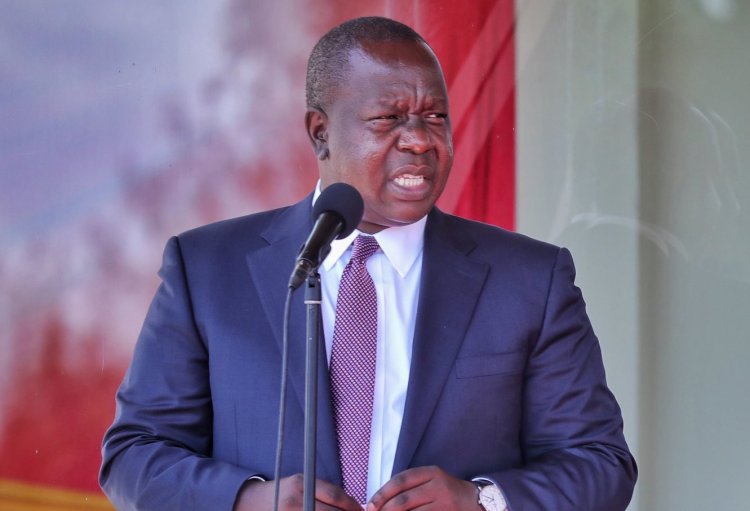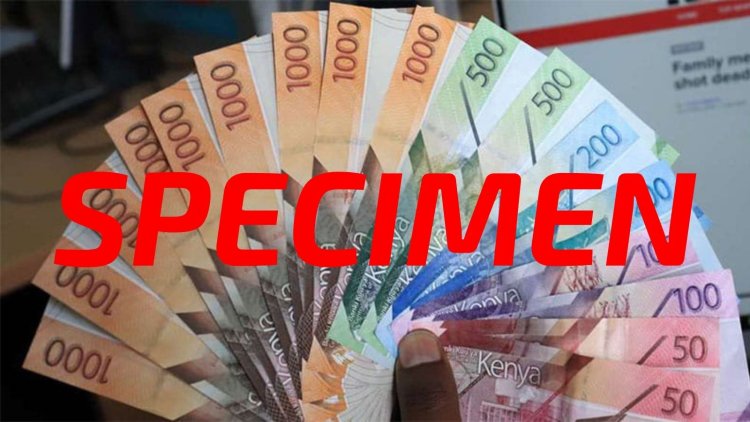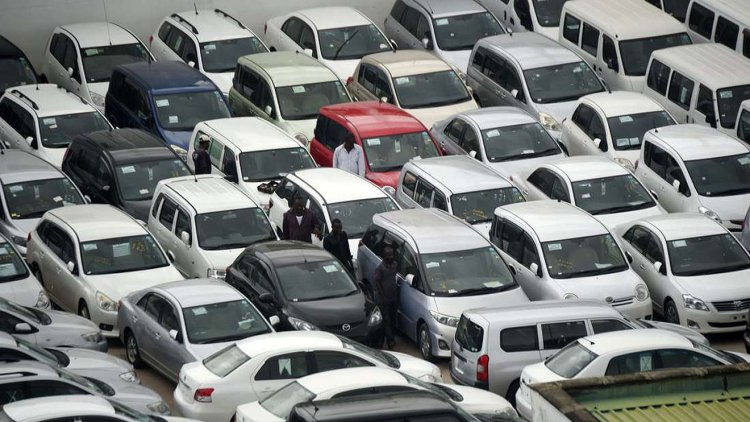Matiang'i: How Car Dealers Are Draining Kenyans Of Ksh200 Notes
He noted that the dealers took advantage of the transition period from the old currency to the new one

Interior Cabinet Secretary, Fred Matiang'i has accused car dealers of playing a part in the country's acute shortage of Ksh200 notes.
Banks are facing a shortage of Ksh200 and Ksh100 notes after politicians and allies withdrew them for use in voter bribery during the campaign period.
Speaking during the launch of the inaugural Money Laundering and Terrorism Financing National Risk Assessment Report (2021), on Wednesday, July 27, Matiang'i blamed the car dealers for colluding with the politicians to hoard the notes for use in swaying voters' decisions ahead of the August 9 general elections.

An image of a bundle of notes. /FILE
He noted that the dealers took advantage of the transition period from the old currency to the new one which saw them exchange the old notes for the new ones in quick succession.
"Car dealers changed billions of shillings. How many cars do you need to sell to be able to have billions and all these dealers are friends of senior politicians?
"They are now the ones financing all these Ksh200 and Ksh500 notes in the villages and so on," he said.
He further zeroed in on the illegal second-hand car dealers who operate in the industry without permits having relied on bribes to squeeze their way in.
The CS vowed to crack down on the dealers, in collaboration with the National Police Service (NPS).
"I have been fighting people called second-hand motor vehicle dealers, two-thirds don't have permits but they are operating because they have paid some of your people and they bribe them every day. We need to scan this environment and see what we need to do in terms of reinforcement," he added.
He noted that the election week will be crucial as it will influence the decisions taken in combating terror financing and money laundering in the country.
“Either we elect a government that will not fight money laundering because that is its way of life and we will not achieve anything or elect a government that is against money laundering, with integrity and will join all of us in fighting these challenges,” he added.
Matiang’i had initially warned that 40 per cent of candidates for the next parliament and government are suspects of money laundering commonly referred to as wash wash, which has been identified as a major contributor to terror financing.
Money launderers are reportedly taking advantage of the existing gaps in banking regulations to influence the electoral process.
Additionally, those arrested are hardly prosecuted in time with their cases taking long in court.







